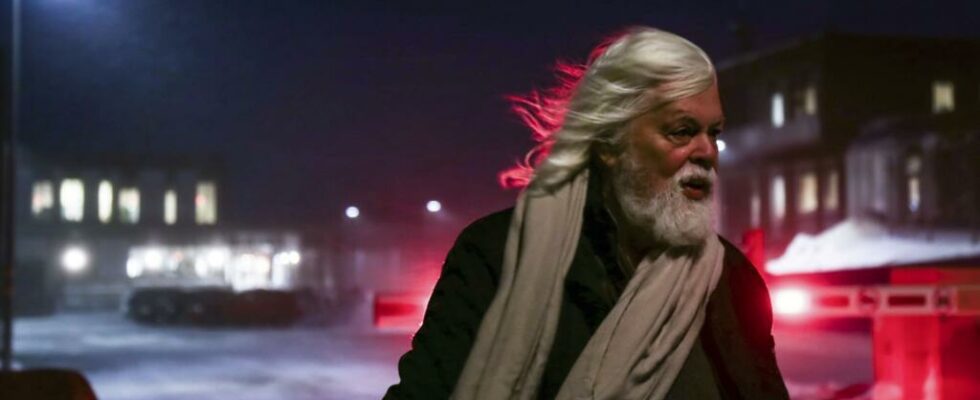After five months in detention in Greenland, Paul Watson was released on Tuesday, December 17 after Denmark rejected Japan’s extradition request. The American-Canadian environmental activist, 74, was arrested in Nuuk on July 21 after the revival of a request issued by Japan in 2012 via an Interpol red notice.
5 mins
RFI: How do you feel after Denmark’s decision not to extradite you and your release ?
Paul Watson: I am very relieved to be able to see my children when I return to France in a few days.
This decision by Denmark not to extradite you is a victory today for you and your fight ?
I think it’s a victory and a recognition that the Japan kills whales illegally and is trying hard to make an example of me, because he doesn’t want anyone interfering with his illegal operations. And they didn’t succeed. We will therefore continue to oppose their illegal whaling.
My imprisonment is a continuation of the campaign to denounce Japan’s illegal whaling operations. By being in prison, I probably brought more attention to what Japan is doing than if I had gone with my ship to fight the whaling ships. So it was a success in terms of our goal of exposing Japan’s illegal operations.
Denmark did not give in to Japan, do you know how your affair ended up being resolved?
I think the Denmark has an obligation to do what is right, given its commitment to human rights.The rules relating to extradition are clear. The charges against me were very minor. They are more than 14 years old and are politically motivated. These factors alone prohibit extradition. Japan was putting pressure on Denmark by threatening to cancel multi-million dollar offshore wind projects if it didn’t deliver. And that, of course, shows how political this matter is.
How have you experienced these last five months in detention?
My conditions of detention were not very bad. The prisoners were friendly. The guards were courteous. I spent most of my time reading or responding to letters. I received around 4,000 letters. Around 70% of them came from France. It took me a long time. I couldn’t respond to everyone. I tried to respond to as many letters as possible, especially those from children.
Are you considering prosecution?
We plan to go to Lyon, France [où se situe le siège d’Interpol, NDLR]and demand accountability from Interpol which, in my opinion, abused its authority for political purposes. My case is being investigated by a European committee examining Interpol abuses since 2017. Interpol needs to determine whether it lets countries use its agencies to persecute their political opponents.
Michel Forst, the UN Special Rapporteur on environmental defenders, warns of an increasing level of repression against environmental defenders.Does the situation worry you?
Over the years, environmental activists have faced increasing persecution. Things are much different than they were in the 1990s, 1980s and 1970s. The laws are much more repressive, to protect corporate profits and government abuses of power. It is therefore much more difficult to be an activist today than ten, twenty or thirty years ago.
Also listenToday’s debate – Who wants the skin of environmental defenders?
Will this lead you to change your actions or will it increase your determination?
Our methods have been proven over the past 50 years, so I don’t see how to change that.Our approach is that of what I call “aggressive non-violence”. We intervene non-violently against illegal activities. I don’t know any other way to do this. The only alternative is for governments to assume their responsibilities under international law. But the current problem is that there is a lack of political and economic motivation to enforce the law, forcing non-governmental organizations and individuals to do the work that governments should be doing.
What are you going to do now?
I will continue to work with Sea Shepherd France to oppose whaling and other illegal activities: turtle poaching, illegal fishing. We will continue to do what we do, what I have been doing for over 50 years.
Iceland has again granted permits for whaling until 2029. Japan extended fin whale hunting a few months ago. Are you remaining confident for your fight?
Over the past 50 years, we have ended whaling operations in Australia, South Africa, Spain, Peru and Chile. And we continue on this path.I am confident that we will eventually end whaling in Iceland, Norway and Japan. But we must also keep in mind that all these whaling activities are highly illegal. They are contrary to international law, and we are committed to upholding it.
